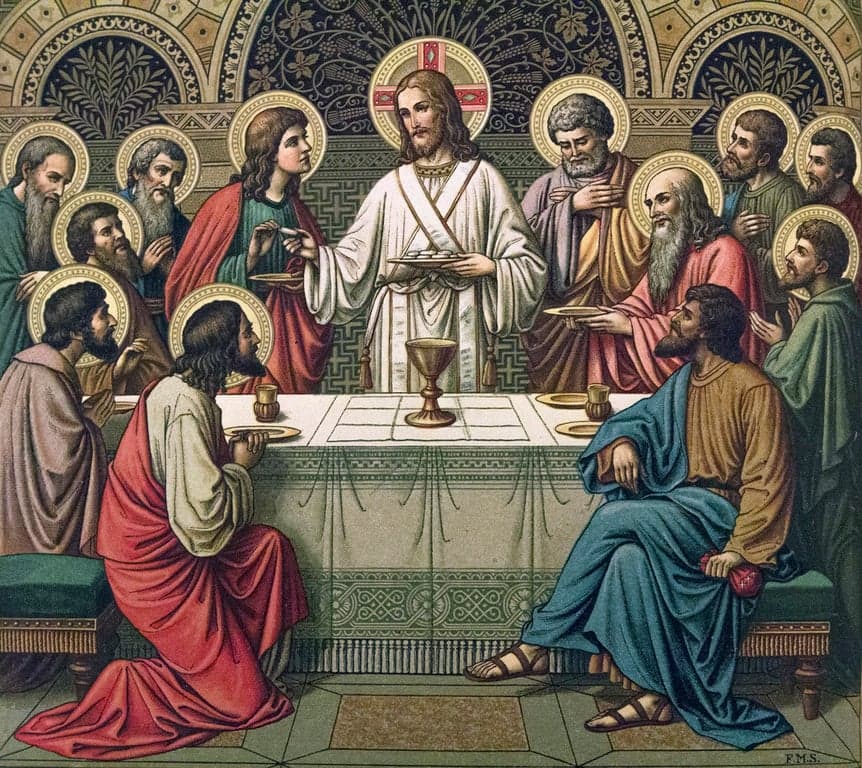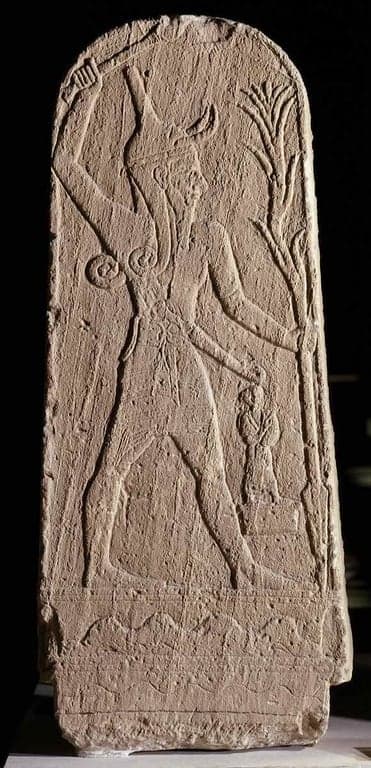
In A Table in the Presence of My Enemies, I deal with what I call the “pre-battle banquet motif” from the Old Testament and other Ancient Near Eastern literature. Essentially, I noticed that a number of stories from antiquity feature a grand meal of some sort before the conflict on which the narrative is focused is joined. On one level, this book is a survey of that literature. What it developed into above all, however, is a study in the deep cultural patterns that give the Eucharist its heft as a defense in spiritual warfare.
Covenant Meals
At the heart of everything I say in this book is the Ancient Near Eastern covenant. The covenant provides the logic behind the pre-battle banquet. Most meals, especially banquets featuring meat, were an expression of covenant bonds. Meat was almost always offered as a sacrifice before it was enjoyed as a meal. Eating was a very intimate affair. Thus, table fellowship came to become an expression of covenant bonds renewed in sacrifice and worship. My idea is that this simple, unspoken association between meals and covenants provides the backdrop for stories and other appearances of meals in militaristic settings. Before going into battle, soldiers would want to renew their covenant relationships between one another and with God.
Rabbinic and Patristic Interpretation of Psalm 23:5
One of the surprising things that happened as I was writing this book was that it eventually developed into a defense of patristic biblical interpretation. Many modern commentators find the reference to the “table in the presence of my enemies” bewildering at best, and intolerably gloating at worst. All of the Church Fathers whom I read, in contrast, identified the table with the Eucharistic altar, and the enemies with our spiritual foes, and they relished this message of God’s provision in preparation for battle. Similarly, Jewish literature on Psalm 23:5 linked it with historical narratives from the Bible, especially the provision of manna in the wilderness. Although neither of these perspectives is exactly what the author of Psalm 23 was thinking of precisely, they expand upon his pre-battle banquet perspective and apply it intertextually in ways that are far more consonant with the author’s original vision than the attempts of modern interpreters.
When I began speaking with the editors of the Lectio Sacra series about considering my book for publication, they communicated that they would like to see more patristic material, because that is a major focus of the series. I responded by writing entirely new material, a whole chapter on the patristic interpretation of Psalm 23:5. Ironically, this has gotten more attention and praise than almost anything else in the book!
The Table in the Presence of My Enemies Is a Messianic Banquet
Another major piece of the book is devoted to showing how the pre-battle banquet motif informs the later apocalyptic banquet literature that developed in the years leading up to the New Testament era. For instance, there is an entire chapter on the feeding of the 5000, where I explain why this was such an important messianic sign. Ultimately, the Eucharist is the pre-battle banquet for Christians, provided for us to renew us in the New Covenant, in preparation for our own personal spiritual battles.



